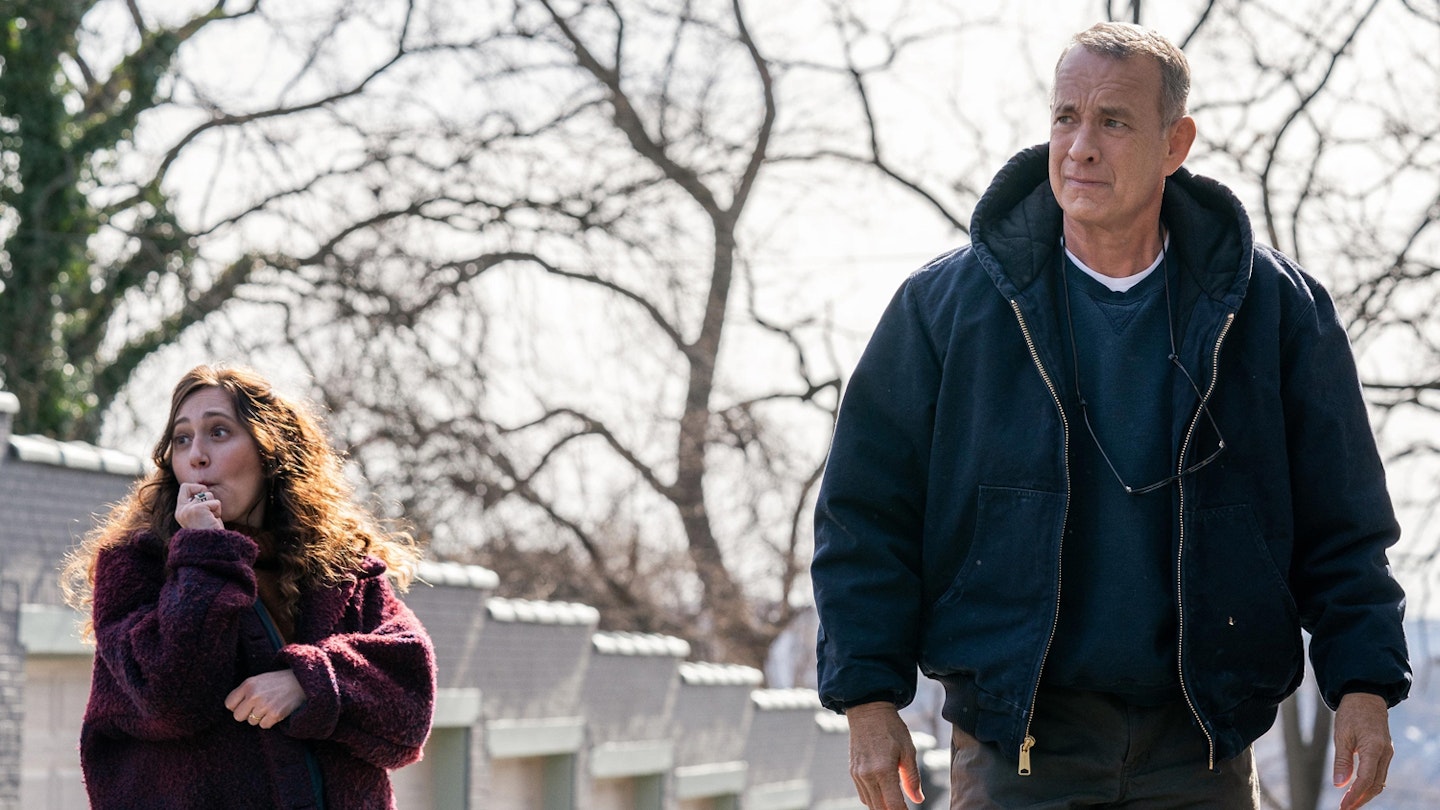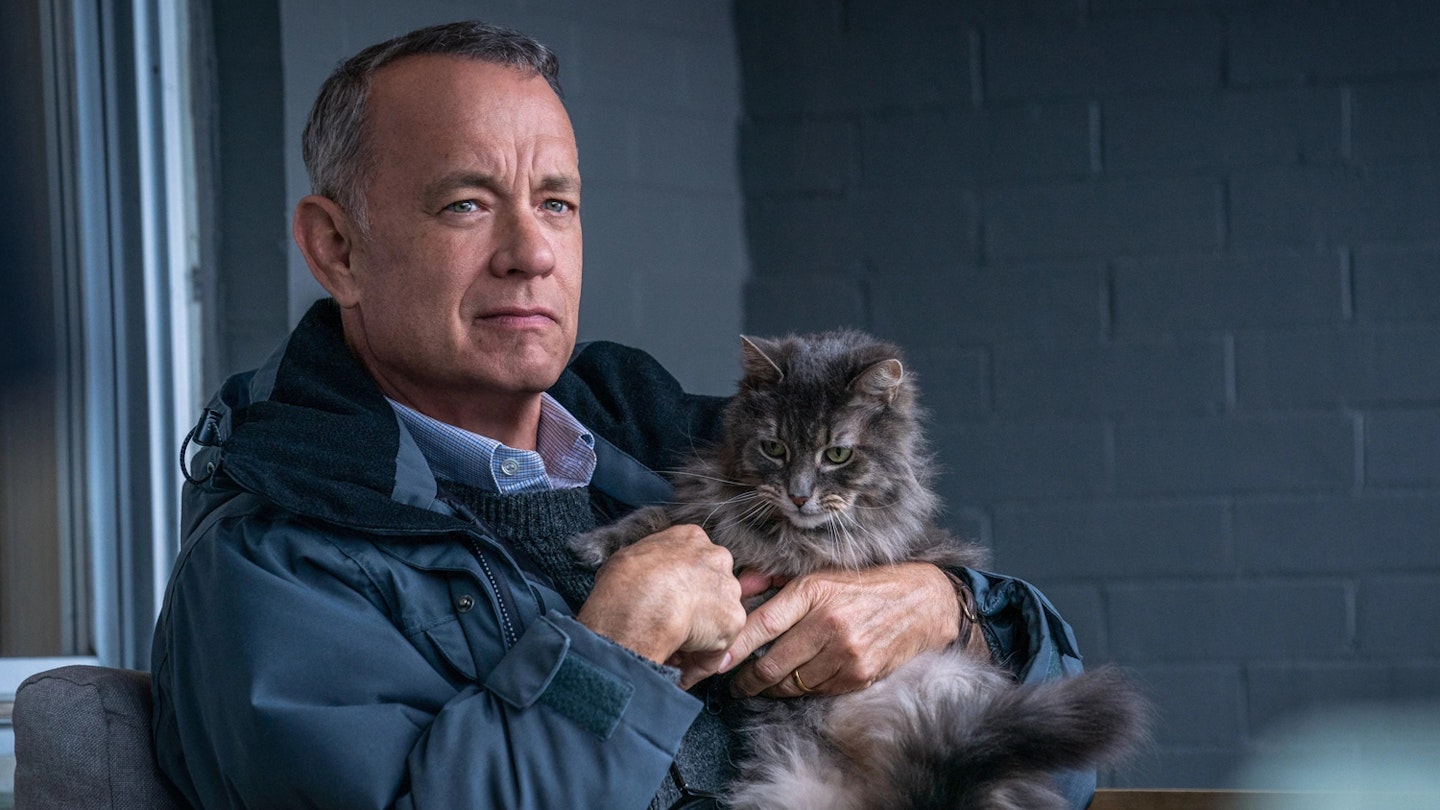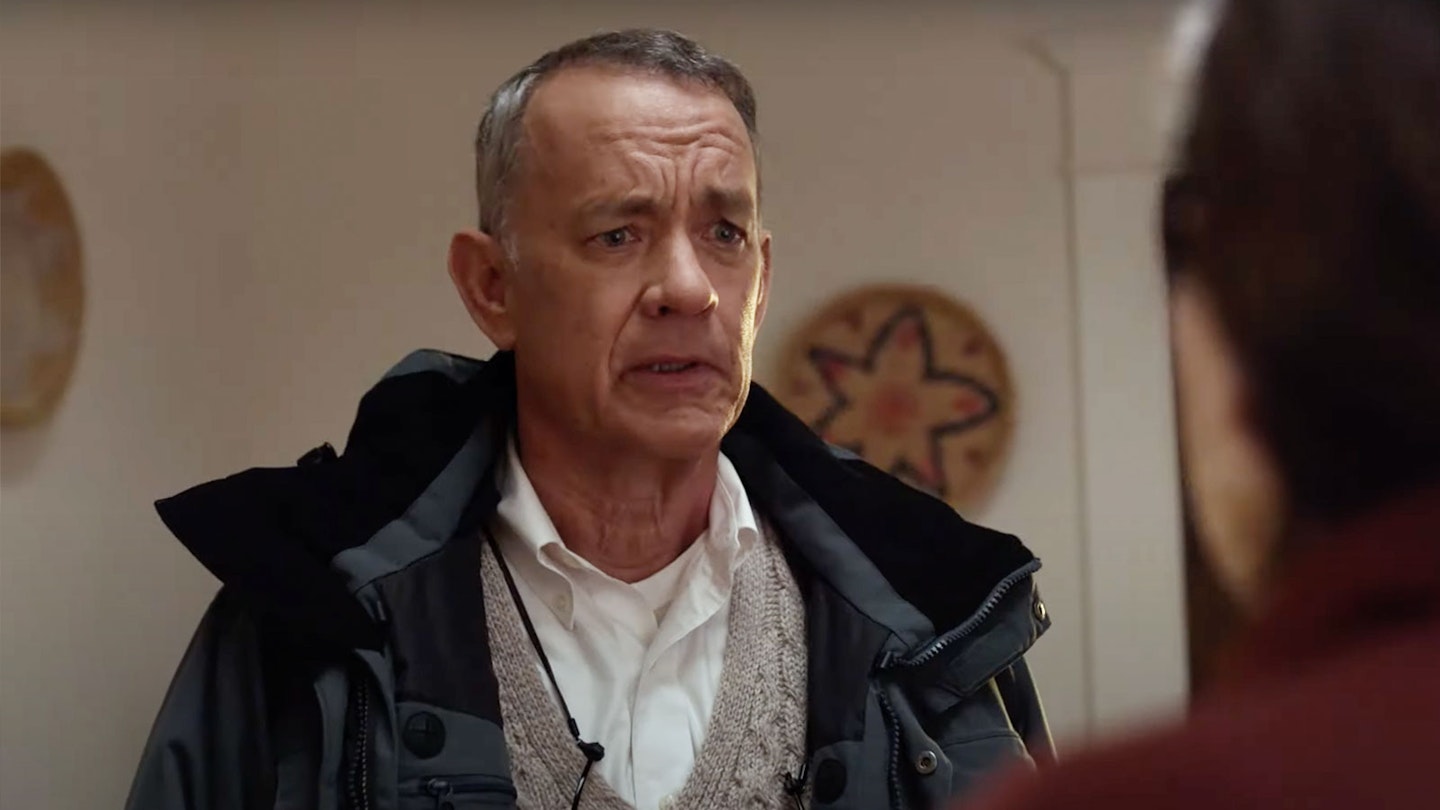The 2015 Swedish film A Man Called Ove — adapted from the novel of the same name by Fredrik Backman — is a very Scandinavian brand of feelgoodery: one which sees its hero regularly try to kill himself. It became a huge hit in its native country, beloved for its flinty anti-hero and morbid sense of humour, and remains the third biggest film of all time at the Swedish box office. Hollywood, inevitably, came calling soon after.

Like many English-language remakes, A Man Called Otto doesn’t totally justify its existence — you can’t help but wonder, when films are so easily available online, why not just point audiences to the original? But it does at least pull off a significant casting coup, in the form of Tom Hanks.
Tom Hanks is so good that the film suffers somewhat when he's not on screen.
Last seen this grouchy when announcing there was no crying in baseball, Hanks is clearly relishing playing against type here, abandoning his “America’s Dad” persona to step into Otto’s short-fused slippers. It’s a typically excellent lead performance, misanthropic yet good-hearted, Hanks finding and elevating the humanity in the character. (He is particularly adept at smiling without ever losing his frown.)
He’s so good, in fact, that the film suffers somewhat when he’s not on screen. It’s undoubtedly a lovely touch to cast Hanks’ real-life son Truman as the younger Otto in repeated flashbacks, fleshing out his early life and marriage to Sonya (Rachel Keller), but those scenes are by far the weakest, treacly and overly rose-tinted, and have an adverse effect on the film’s pace. It’s a constant tonal plate-spinning act, balancing the comic elements with the repeated scenes of attempted suicide, and despite its sharper edges, director Marc Forster doesn’t quite avoid sugary clichés.
What keeps it consistently likeable, Hanks aside, are the actors surrounding him. There’s a great role for Juanita Jennings as one of Otto’s estranged neighbours, and a surprisingly moving subplot about a trans teen in Otto’s life, played by trans actor Mack Bayda. Best among the ensemble is Mexican actor Mariana Treviño as Marisol, the mother of a new family living across the street from Otto; her vivacity and genial zest for life gives a supposedly grouchy film its warm heart. The It’s-A-Wonderful-Life-y message that eventually comes — that no man is a failure who has friends — is ultimately hard to snub.

